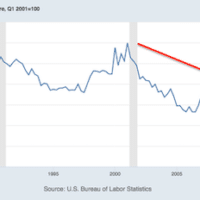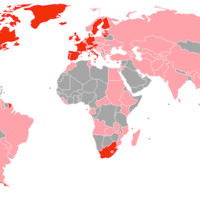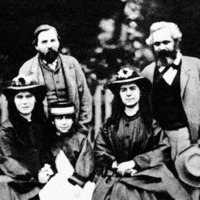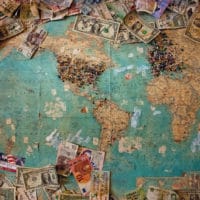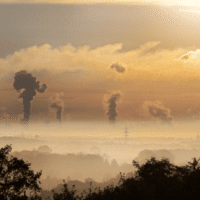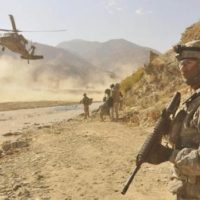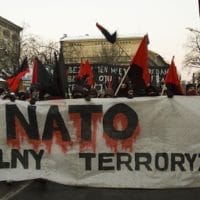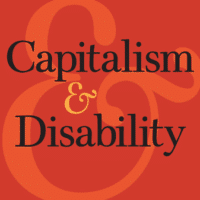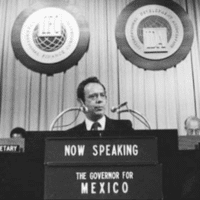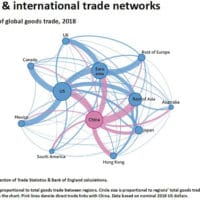-
Lula: “U.S. hand” on everything that’s happened in Brazil
In an interview with Bob Fernandes, on TVE Bahia, former president Luiz Inácio Lula da Silva said that the U.S. government “created the Lava Jato investigation to take our oil.”
-
Time is running out
Richard Reeves is right about one thing: time is crucial to capitalism’s legitimacy. The premise and promise of capitalism are that the future will be better than the present. And “if capitalism loses its lease on the future, it is in trouble.”
-
CEO compensation has grown 940% since 1978
Typical worker compensation has risen only 12% during that time
-
Financial turbulence continues as major economies move towards recession
In response to the Wall Street decline, markets in Asia fell, with Japan’s Topix index down 1 percent while the Australian market dropped 2.9 percent, wiping $60 billion off share values. Markets in Europe also fell before recovering some of their losses later in the day.
-
The commodity and the making of “woman”
If we have little interest in the scholasticism and the baroque arcana of contemporary marxist theoretical debates, the wealth of marxist theory can be neither dismissed nor ignored. And debates around marxist inspired feminism are a case in point.
-
The IMF’s latest victims
In 2013, the International Monetary Fund produced a report acknowledging that it had “underestimated” the effects that austerity would have on Greece’s economy. Yet the Fund has made the same mistakes in its subsequent deals with Argentina and Ecuador.
-
The Modern Money Movement with Andrés Bernal
We are joined by Andrés Bernal, policy advisor to Alexandria Ocasio-Cortez and doctoral student at the New School for Public Engagement, Division of Policy Management and Environment. We speak with Bernal about his history with political organizing and the critical role he has come to play in the Modern Money movement, including the struggle for […]
-
Why Kashmir is suddenly a potential global point of conflict
Before India’s Home Minister Amit Shah introduced the Jammu and Kashmir Reorganization Bill in the Indian Parliament, his government sent tens of thousands of Indian troops into Kashmir. There is no official number, but it is often said that there are nearly 600,000 Indian troops in the state. That a population of 12 million people needs this kind of armed action suggests that they are an occupied people.
-
Crisis, which crisis? climate change and capitalism
The essays compiled in this special issue of Key Words address the theme of crisis. But which crisis?
-
Don’t believe the hype about the ‘rules-based order’, capitalism is perpetual war
Why is war, or the threat of it, a permanent feature of our society? The most common answers point to contingencies–the psychology of particular world leaders, for example, or the specific gains to a company to be made from a conflict. Alternatively, they rely on universal claims that religion causes eternal strife or that conflict is part of our human nature.
-
NATO’s China Double-Think by Finian Cunningham + Neoliberalism Has Met Its Match in China by Ellen Brown
We cannot win a currency war by competitive currency devaluations that trigger a “race to the bottom,” and we cannot win a trade war by competitive trade barriers that simply cut us off from the benefits of cooperative trade. More favorable to our interests and values than warring with our trading partners would be to cooperate in sharing solutions, including banking and credit solutions.
-
Disablement, oppression, and political economy
It is often claimed that disabled persons are invisible, disregarded by mainstream society, and irrelevant to the workings of society.
-
There must be bones under the paved street
On 6 August 1945, the United States military dropped a bomb that contained 64kg of uranium-235 over the city of Hiroshima (Japan). The bomb took just over 44 seconds to fall from 9,400 metres and detonated 580 metres above the Shima Surgical Clinic. Over 80,000 people died instantly. This was the first use of the nuclear bomb.
-
The Mexican debt crisis and the World Bank
In 2019, the World Bank (WB) and the IMF will be 75 years old. These two international financial institutions (IFI), founded in 1944, are dominated by the USA and a few allied major powers who work to generalize policies that run counter the interests of the world’s populations.
-
Miliband’s masterpiece
Fifty years after it was published, The State in Capitalist Society remains indispensable for any socialist movement with ambitions of government.
-
China & World trade
Just in case you had forgotten that China is a major part of the global economy, here is a chart from the Bank of England’s Financial Stability Report.
-
Apocalypse economics and economic apocalypse
Unfortunately for humanity, the naturalizing of capitalism by dominant mainstream neoclassical economics establishes a bulwark against the posing of vital economic questions which challenge capitalist rationality.
-
The NYT’s six percent solution for student debt
Why are Democratic candidates going on about student loan debt? Why, the problem is practically solved already!
-
The exploitation time bomb
Worsening economic inequality in recent years is largely the result of policy choices that reflect the political influence and lobbying power of the rich. There is now a self-reinforcing pattern of high profits, low investment, and rising inequality–posing a threat not only to economic growth, but also to democracy.
-
U.S. economic warfare and likely foreign defenses
Keynote Paper delivered at the 14th Forum of the World Association for Political Economy, July 21, 2019. Today’s world is at war on many fronts. The rules of international law and order put in place toward the end of World War II are being broken by U.S. foreign policy escalating its confrontation with countries that […]


